Five Reasons Scud is Your New Favorite Comic that You Never Heard About
A tragic yet hilarious origin story, some killer friends and enemies, and a precursor to Mr. Meeseeks— there's so much to love about 'Scud: The Disposable Assassin'
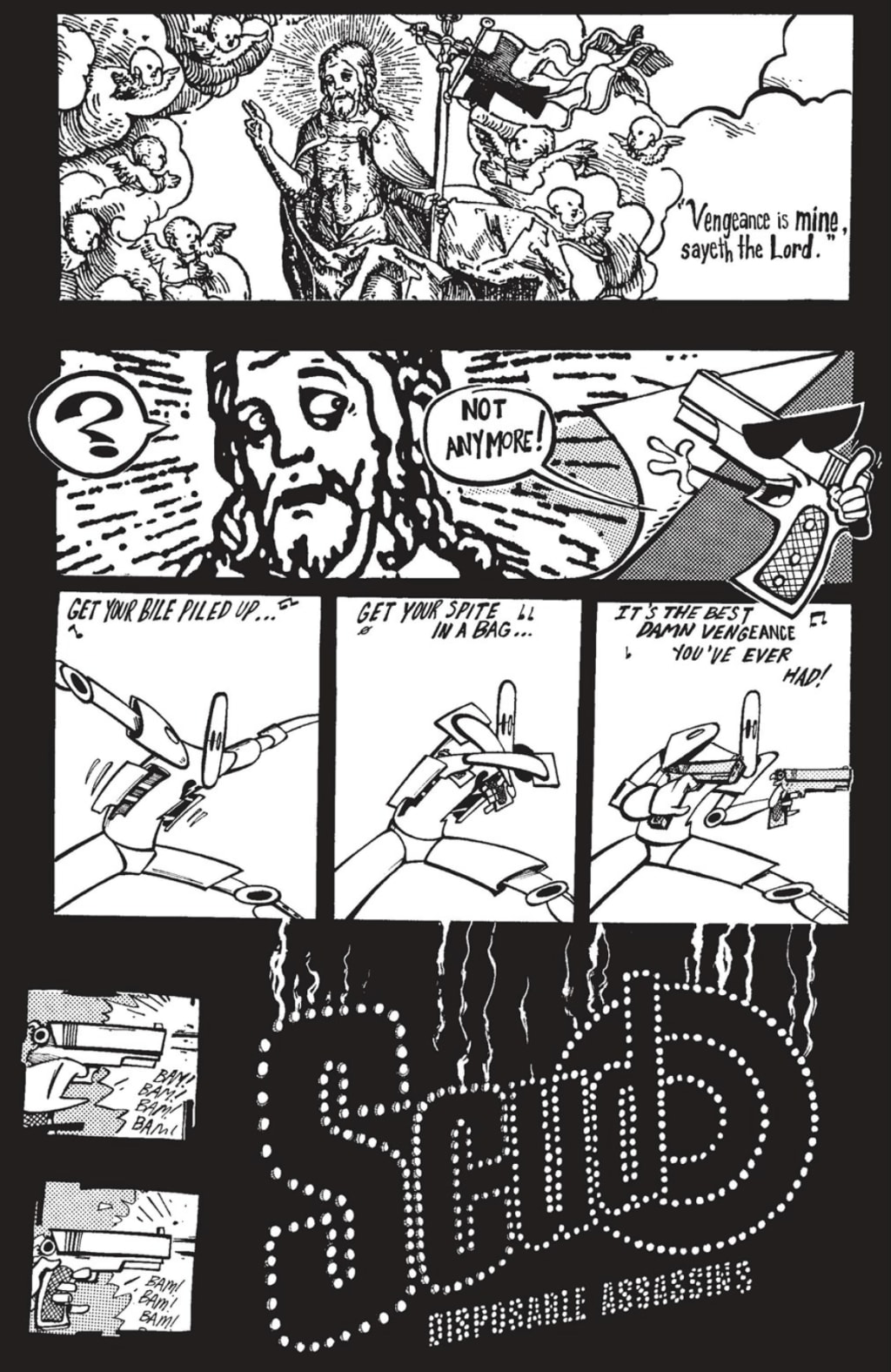
From the vaults of the mid-’90s, Rob Schrab’s limited comic series, Scud: The Disposable Assassin, is a clear example of a masterful story that has flown for too long below the public radar. This surreal hired gun comic is a solid gold hidden gem that everyone should revisit. Here’s what dedicated believers in the Scud underground want you to know about this touching, comedic, blood-soaked adventure.
1) He’s a Cool Freelance Robot Assassin Without a Soul
Scud, the comic’s titular anti-hero, is a “venting machine” robot assassin for hire (customers “vent” their need for retribution) who learns he’s programmed to auto-destruct after icing his primary target, a monster named Jeff. To avoid death, Scud immobilizes Jeff and sponsors the resulting life support costs at a local hospital in the ultimate ‘keep your enemies closer’ play. A free agent, Scud contracts through an assassination firm to afford continued medical costs. Schrab sensitively mines Scud’s unusual circumstances to explore themes like savoring the brevity of life or acknowledging the beauty in those with whom we grow close.
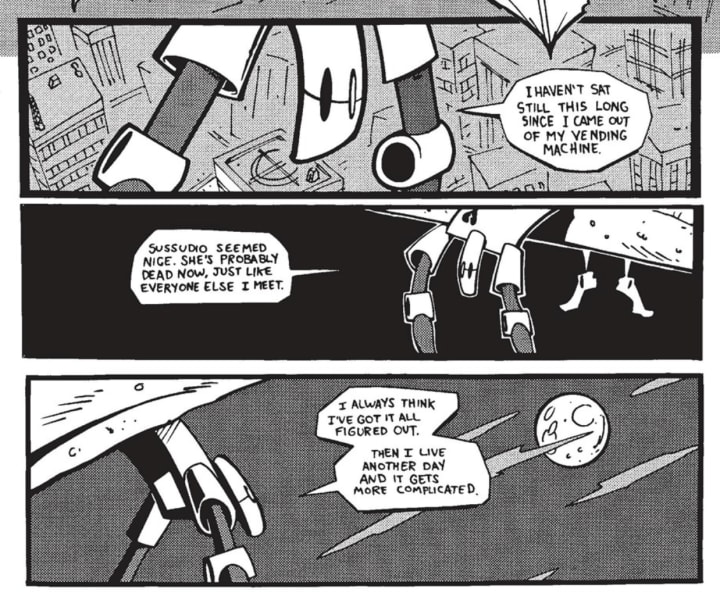
2) Scud Brings a Lot to the Party
Set on an Earth opened to intergalactic travel, Scud has a few weird friends who shine through the comics’ twenty-four issues and even inspired several spin-off titles. We meet a cyborg mafia sporting a five-pilot ‘macrobot’ a’la Voltron. A resourceful yet timid, zipper-covered, sack-like creature named Drywall plays sidekick. A ScudCo forerunner— the charming, bunny-like Oswald— teams up to help in a pinch. Our robot even falls for a female bounty hunter, Sussudio, who was hired to capture him. There's even God and a transdimensional horse. Readers will find the villains of the story equally conflicted and entertaining, whether it’s the plug-headed, movie-quoting, body-morphing Jeff, or a movie-producing ego monster, or Drywall’s maniacal younger brother and the new King of Hell, System, or Voodoo Ben Franklin.
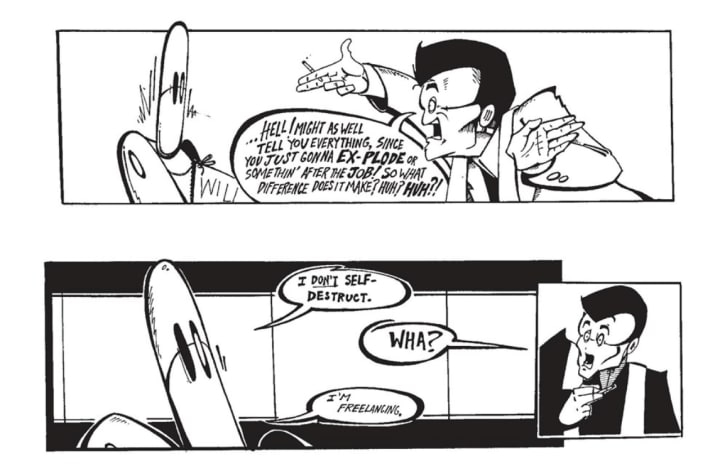
3) Onetime Hollywood Darling Fades to Elusive What If…?
For a moment, Scud looked to be the next big comic film. Oliver Stone optioned the film rights, and Jim Carrey was rumored to play Scud. Insurmountable challenges, however, and two poorly received video game releases along with copyright complications nulled the odds of seeing an adaptation. Scud’s back issues included suggested voice talents, however, and it’s easy to see why. The hyper-cinematic comics employ powerful tropes and are strewn with pop-culture allusions. It’s easy to joyfully imagine Scud as a film or tv series while reading through the panels.
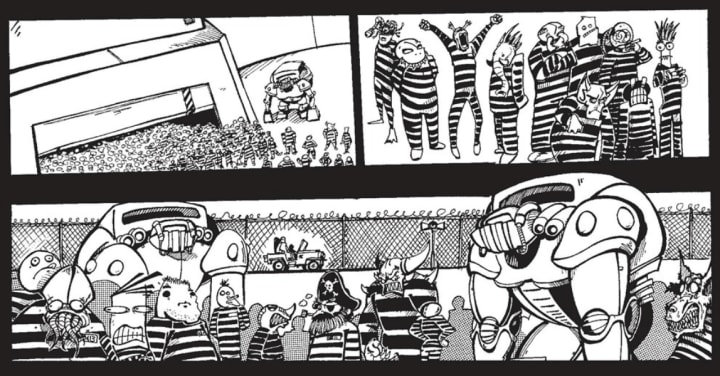
4) Scud, Interdimensional Cable, and Other Mind Blowers
Scud acted as a prototype for one of today’s most successful animated shows, Dan Harmon and Justin Roiland’s, Rick and Morty. Harmon, who wrote Scud along with Schrab and Mondy Carter, has spoken about how the comic inspired him to build out Rick Sanchez’s strange galaxy populated by aliens and Cronenbergian mutants. Scud feels like a madvertized Jodorowsky cross between Bladerunner, Bond films, and Reservoir Dogs, and you can see Rick and Morty taking root in that strange soil that Schrab’s team churned up with Scud.
5) Scud Was Born of Heartbreak and Nearly Left Unfinished
With a broken heart on his chest and an auto-destruct warning posted on his back, Schrab created Scud after a painful breakup. Twenty issues and four years later, Schrab once again faced turmoil and stopped production on Scud, leaving the series on a cliffhanger. Scud would have remained unfinished, except Schrab was inspired to publish four final issues to complete the series in 2008 as Image Comics prepared a reprinting of the title. It turns out, Rob Schrab has a lot to teach us about creativity, burnout, and redemption, and with Scud he let the robot assassin for hire do the talking.
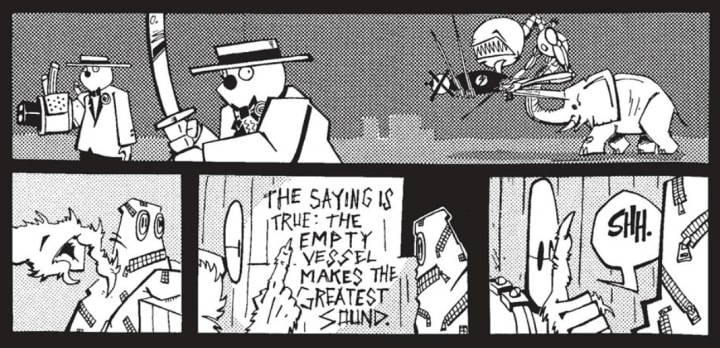
About the Creator
Philip Canterbury
Storyteller and published historian crafting fiction and nonfiction.
2022 Vocal+ Fiction Awards Finalist [Chaos Along the Arroyo].
Top Story - October 2023 [All the Colorful Wildflowers].


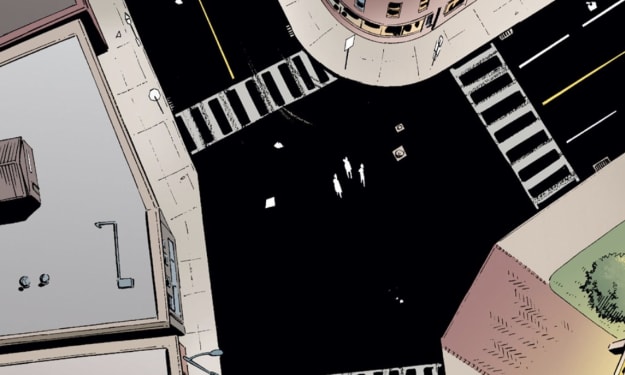



Comments
There are no comments for this story
Be the first to respond and start the conversation.